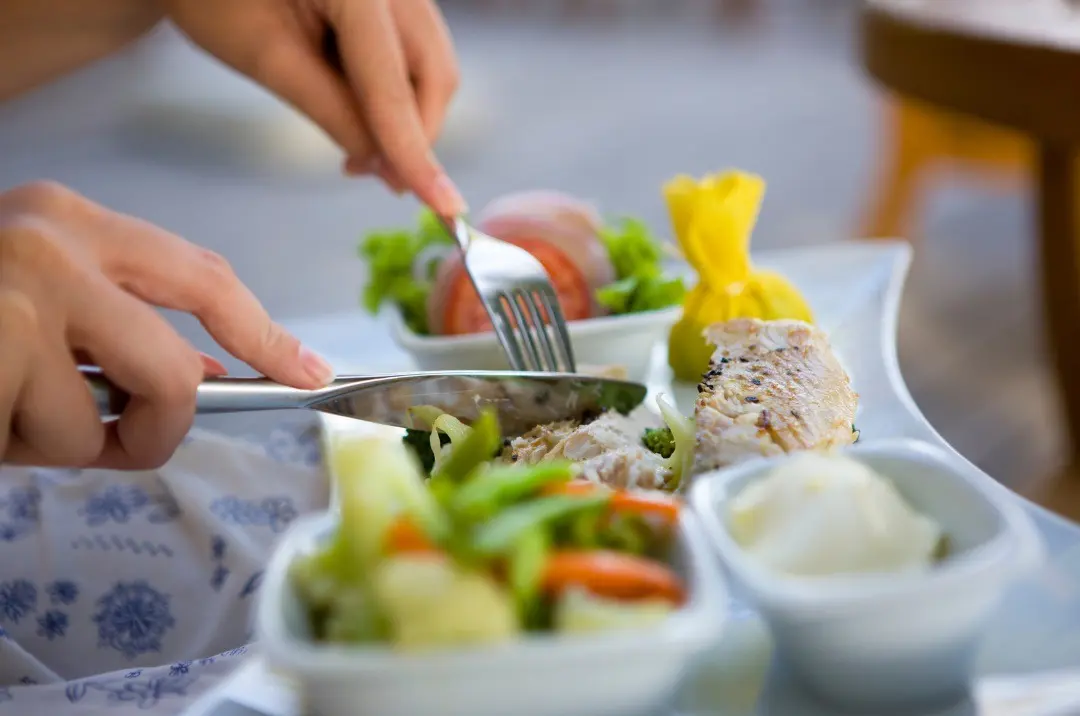Food Poisoning 101

We’ve all had some funky fish or a mysterious cafeteria entree at some point in our lives. Food poisoning occurs when a person eats food that is contaminated with harmful germs. While there is no one food or food group that inherently causes this type of poisoning, some foods are more likely to make you sick. For example, raw or undercooked foods that come from animals pose perhaps the greatest risk, such as raw meat, eggs, shellfish, or unpasteurized milk. Even unwashed fruits or vegetables pose a risk for poisoning!
The symptoms of food poisoning vary from a mild upset stomach to a more serious bodywide sickness. Additionally, symptoms can start within 30 minutes, or be delayed for days after eating the contaminated food or drink.
Common symptoms of food poisoning include the following:
- Stomach pain/cramps
- Nausea
- Vomiting
- Diarrhea
- Fever
If you are experiencing diarrhea or vomiting, remember to stay hydrated! These symptoms can cause dehydration, so it’s important to continue drinking plenty of fluids.
While most people can recover from food poisoning at home, sometimes it can become a serious medical emergency.
Severe symptoms include:
- Bloody diarrhea
- Frequent vomiting that prevents keeping liquids down
- Diarrhea that lasts more than 3 days
- Signs of dehydration, including little to no urination (peeing), a very dry mouth, or feelings of dizziness
- High fever over 102°F when measured in the mouth
- Neurological symptoms, such as blurry vision or confusion
If you are experiencing any of these more severe symptoms, contact a doctor and seek medical treatment right away. If you or someone else is showing signs of severe dehydration or is showing signs of a medical emergency, call 911.
How to prevent food poisoning
Practicing food safety at home is a simple way to prevent food poisoning:
- Wash your hands, utensils, and cooking surfaces often and thoroughly.
- Rinse fruits and vegetables.
- Separate raw animal products like meat and eggs from other foods that you won’t cook.
- Cook food to the right internal temperature using a food thermometer.
- Refrigerate or freeze leftovers or perishable foods.
- Do not eat perishable food that has been left out for more than 2 hours at room temperature.
- When in doubt, throw it out: if you are in doubt about a food’s quality, it’s better to be on the safe side.
Certain populations are at high risk for food poisoning including people with weakened immune systems, children under 5 years, pregnant women, and adults over 65 years. While food safety is important for everybody, it is especially so in this group. In addition to following the prevention tips above, it is recommended that those at high risk avoid certain foods like soft cheeses and sushi or other raw seafood.
When to get Poison Help for food poisoning:
You don’t need to have symptoms to contact Poison Help! If you are worried about something you ate or think you are experiencing symptoms of food poisoning contact the Poison Help line (1-800-222-1222) or use our free online Poison Help tool.